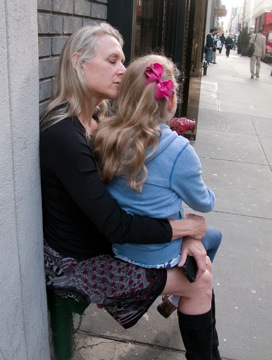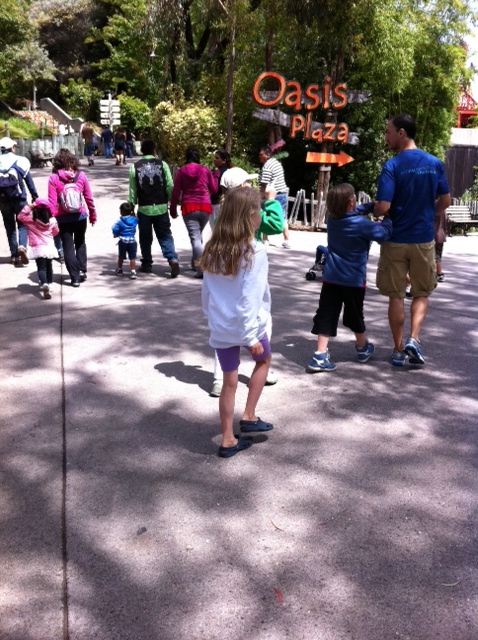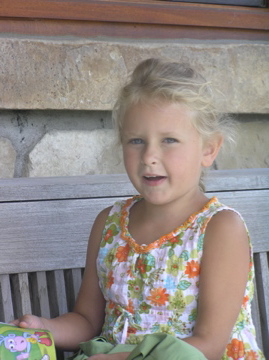I’m continuing to research SIBs, which stands for “self-injurious behaviors”. It’s far too complex a topic to tackle in a quick 800 – 1000 word post. There are a number of topics it seems important to discuss, which all fall under the heading of “self-injurious behavior.” (Feel free to add more in the comments section, this is definitely a work in progress.) I’ve broken these topics down to include:
- The language we use to describe such actions.
- The perception (usually of neurotypical parents, caregivers, doctors, school employees, educators and the general public) of what these actions may or may not mean, this is particularly critical when the person taking such actions is partially speaking or non-speaking.
- The personal experiences of those who have engaged in such actions that may or may not lead to real injury.
- The experience of those who want to help and/or are in a position where they may be held accountable for the actions or inactions taken. (This includes parents who love their child and would do anything to lessen their child’s frustration and pain.)
- What can be done to help those who head bang, bite, pinch, punch or engage in actions that lead to serious and/or permanent injury?
- What can be done to help those who head bang, bite, pinch, punch or engage in actions that are difficult to witness, but do not lead to permanent or serious injury?
I will try to cover all these various sub-topics, but first I’m going to tell you a story.
Emma sits cross-legged on the floor in our living room. Her tutu billows about her plump legs, it’s pink ribbon sash lies undone near her. In one hand she holds one of my red suede pumps, it’s small round heel directed at her forehead. Wordlessly she smacks her head with the shoe’s heel over and over again as if she were driving a nail into a wooden plank.
“ NO! Emma, don’t!” I plead, running over to her. I take the shoe from her, kneeling down to survey the damage. There is no blood, just a small pink mark above her left eye where the heel made contact.
Instinctively I pull her into me wanting to comfort, but she resists. She stares over my shoulder. No sign of pain, there are no tears, no distress. Her face is the face of a perfectly content toddler. Whatever emotional trauma I imagine for her is mine alone. She turns away from me and reaches for the other shoe lying a few feet away.
“No Emma! You cannot hurt yourself,” I say as though this were a natural thing to remind such a young child. Bewilderment overwhelms my shock. Emma stands up and wanders off, leaving me with one red shoe in each hand.
This was how I responded to Emma’s seemingly bizarre actions. This was how I continued to respond to Emma when she began to bite herself. This was all I knew to do. Remove the thing that was causing damage, except that when that “thing” was her own fist or fingers or teeth I was powerless and defeated. So I begged her, pleaded with her to stop, usually in a loud, panic-stricken voice. Why was she feeling compelled to do such a thing? Was it a deep need for sensory input? Did her head hurt? Was she trying to cope with internal pain caused by some outside source – the daylight streaming in through the window, the heat from the radiator, the clicking noise the steam heat made as it surged through the pipes, was there some noise only she could hear that bothered her, did the fabric from her tutu itch or dig into her skin, or was it something else that I couldn’t see or understand?
I spoke with experts, doctors and other parents, but I never learned how to help her. I watched YouTube videos and read research articles, I spoke to school staff, psychologists and people who work in hospitals. Nothing I read or heard about made much difference other than to make me feel even more panicked and fearful. The language used by those in the field of Autism is almost uniformly fear based and along the lines of deficit thinking. By saying someone is engaging in “self-injurious behavior” we are suggesting they choose to “behave” this way. But what if this is actually incorrect? What if you were unable to make yourself understood through spoken language and had a horrific headache? What if you could not use words to describe the pain you were in? What might you do? What if you felt such a surge of frustration you lost the ability to speak? What if you could not find something or something broke or the music you were listening to or the DVD you were watching was calming and beautiful and it suddenly, abruptly, stopped or skipped, what if you needed it and now it was gone? What if the only way you felt better and calmer was by hitting yourself. What if the very sensation viewed by onlookers as harmful was actually helpful to you?
To someone like my daughter, her response to upset of various kinds is not the response of a child being difficult or bratty or frustrated. Hers is the response of someone who’s world is coming to an end. She is in full panic mode. If she said, “I can’t take this. I’m feeling completely overwhelmed, I don’t know how much longer I can hold on, I just want to scream and punch something!” We would nod our heads and say, “gosh I know exactly how you feel! I’ve felt that way too! Let’s talk about it!” We would go over and hug her and she would take solace in knowing she wasn’t alone and the hug might make her feel loved and she might even feel safe enough to talk about it more. Her situation wouldn’t change, the feelings leading up to uttering those words might not change, she may still feel overwhelmed and not know how to change those feelings, but through talking about them, we talkers have come to see there’s some comfort to be had, because our brains are programmed that way. This is what most of us, who are more neurotypical than not, have found. Except that my daughter’s brain doesn’t work that way. Talking and hugs do not help her when she feels overwhelmed, in fact talking and hugs increase her upset!
In addition Emma’s experience of pain is different from mine and many people’s. Emma can twist and yank out a tooth within an hour of it feeling even slightly loose. Emma can have an ear infection that is so bad the pediatrician was incredulous. Emma can show no signs of illness but is found to have strep throat, caught by her doctor only because we happened to be in his office for a routine wellness check up. Emma craves sensory input on a level Richard and I find astonishing. She turns the volume up as high as the TV or DVD player will go of her favorite songs or movies. We are literally blasted out of the room she is in. Sensory input is needed at levels we cannot tolerate. For Emma this isn’t a “behavior” this is a need. How this plays out when she bites or hits I cannot fully know, but that they do, is something I feel sure of.
Last summer I spoke to my friend Ibby who explained why yelling at Emma to stop hurting herself was not working. “It’s a lie,” Ib said. She explained that by telling her she “couldn’t” do something, something she’d just done right in front of me, as evidenced by the teeth marks on her arm, was a lie. A lie that made no logical sense. So I stopped saying things like that. Soon after I stopped yelling at her, I realized that anything I said could be heard as scolding, judgmental and counterproductive, especially when done in a loud voice. Now that I have a better understanding of language and how language can come and go, I understand it isn’t just Emma’s ability to communicate, it’s her ability to understand all verbal communication. All spoken language, both hers and anyone else’s goes out the window.
I have to stop talking. This is counter intuitive for me, but it’s key. Stop talking. I have to remind myself of this. If Emma is in the midst of an upset where she has begun to bite herself, no amount of logic will prevent her from biting mid-bite. When Emma is biting herself this is an indication to me that I need to be quiet. Sometimes she will come to me and allow me to put my arms around her in a firm embrace, other times she will reject all contact. In the midst of an upset I have learned the single best thing I can do is – nothing. No words, no physical contact, nothing. I remain nearby and I wait for her to come to me if she needs or wants to. Once she is calmer, I have a chance at figuring out what led up to the upset… maybe. Once she is calmer I can try to see if there’s a pattern so that I can interrupt it next time before she gets to the point where biting herself seems like the only solution.
The single most unproductive thing I can do in the midst of Emma’s upset is to scold, admonish, restrain and judge her. This may seem obvious to many of you, but it wasn’t obvious to me. Some of the things others have recommended:
Judy Endow wrote: “DISCOVER AND ELIMINATE PHYSICAL PAIN. I have worked with many autistics who REAL PAIN and trying to change behaviors is like telling someone you love that you don’t want to know anything at all about their pain and in fact you want them to learn to behave as if they did not have any pain at all! So many behaviors turn out to be physical – one little girl who banged her head so hard it put holes in the walls, caused concussion and wore a locked helmet was discovered to have had head lice for so long that the lice had burrowed so far under her skin she had to have some sort of specialized treatment more than lice shampoo to get rid of them. She had lice for over 3 years before it was discovered due to them burrowed under her scalp!!! Once the lice was gone so was the head banging.”
(Judy Endow has written a terrific work book Outsmarting Explosive Behavior and while she doesn’t mention “SIBs” specifically, the steps she suggests will certainly be helpful for many.)
In answer to my question “Was there anything that helped? If so, what?” Kassiane wrote: “Treating my cluster headaches. Leaving the SIB alone, treating it not just as a ‘mysterious autism behavior’ but as a release valve for stress, & eliminating or reducing the input that was pushing that far. Changing the situation has a much higher success rate than “stop doing that”, because I need a way to cope with the situation that leads to chewing my hand…I dont even notice until I’m a bit…gnawed.”
Anonymous 1 wrote: “I do remember, in those early days, that I liked the head-bashing because I only needed to do it once or twice. I could pound my fists into the dirt until my knuckles scabbed up, but the pain that I felt would barely measure up to the sound of my own screaming in my head. No matter how much I tried to let it out, it just never worked. I would punch myself into exhaustion and fall asleep, still feeling completely trapped, helpless, and alone. I would wake up afterward hearing my own screaming in my head.
“When I bashed my head, though, the screaming stopped. It just cut off, and then the pain spread over my entire scalp, like a blanket over my brain.”
Anonymous 2 described a prickly sensation all over their scalp caused by a new haircut.
Many spoke of the frustration leading up to the biting, hitting, etc. Redirection seemed to help less serious actions, but everyone, everyone agreed that scolding, punishment or anything that could be viewed as punishment made the punching, hitting, banging and pinching much, much worse.
Having said all of this, we are fortunate in that Emma has never done more than left a mark on her arm or hand. But there are others who do. There are children and people who break bones, break the skin, and do permanent damage to themselves. What then? What does one do to help them? What can be done?
I’m afraid I have no answers for these situations. But whatever the “remedy” or “therapy” being employed, we have to ask the person who is being subjected to these various things if it is in fact helpful and if they are unable to communicate by typing, writing or speaking, we must ask ourselves – Would I want to be treated this way? This is, at least, a starting point.









